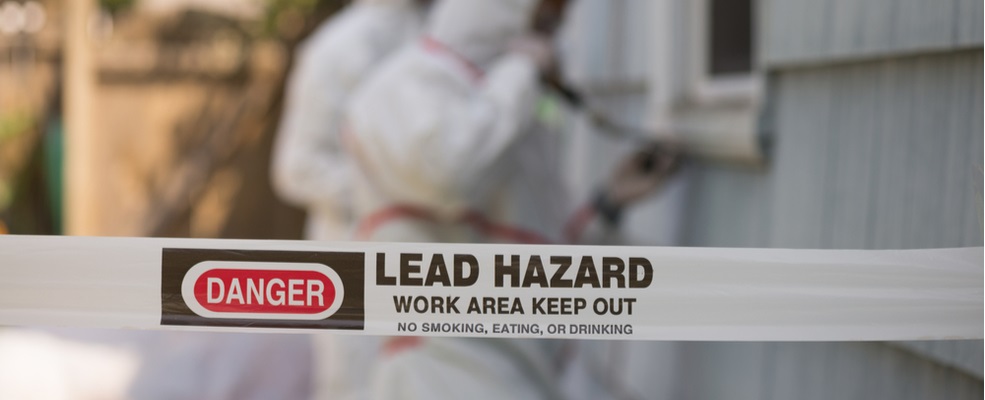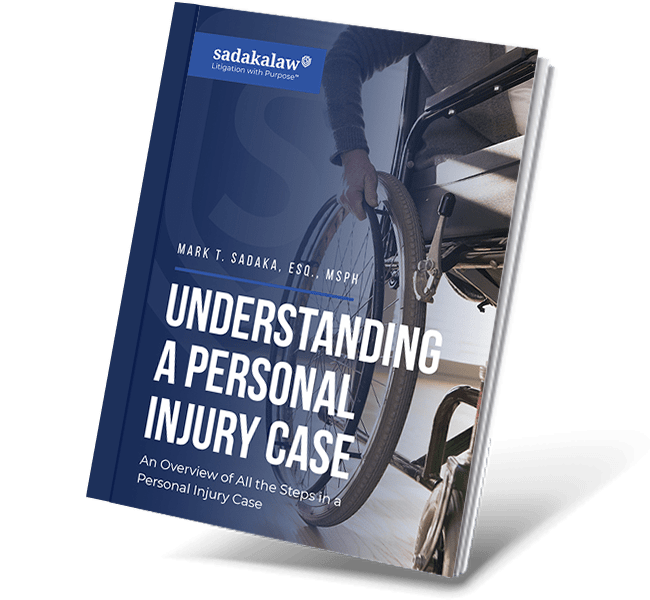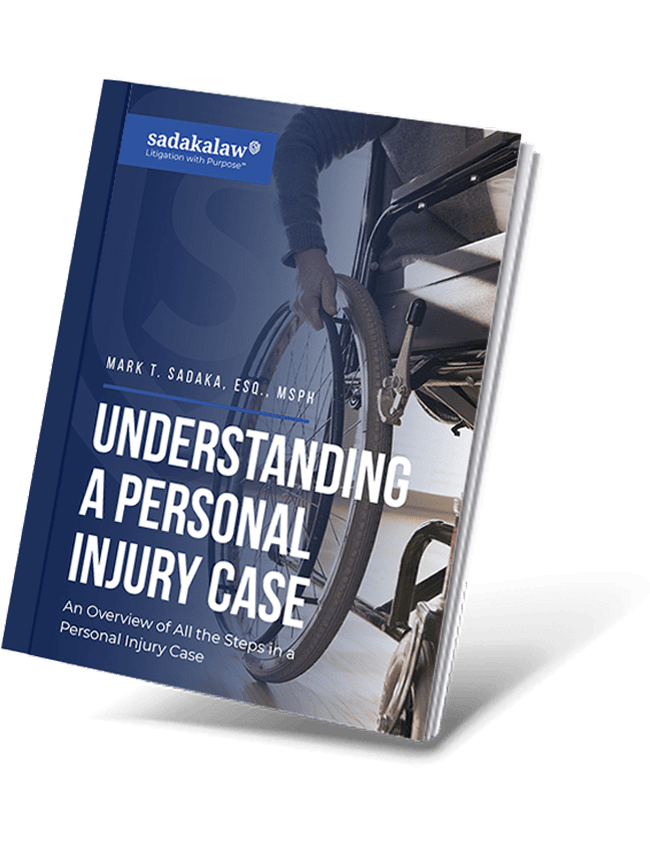Prolonged exposure to these substances and chemicals can cause severe, life-threatening illnesses. However, because most of these illnesses usually do not appear until years later, toxic exposure cases are complicated and challenging. Fortunately, Sadaka Associates has a team of Englewood, New Jersey toxic exposure lawyers ready to offer you the legal assistance you need.
Related Lawsuits
- 2019: A Buffalo Wild Wings manager died and 12 others were sickened when a bleach-based solution mixed with an acid spill, emitting toxic fumes. The family can file a worker’s compensation claim but likely cannot sue the restaurant unless third-party negligence is proven.
Examples of Harmful Chemicals and Substances
Various materials could contain harmful chemicals that could severely impact your health. The following are some common examples of toxic substances and chemicals you could come across at work or home.
Air Pollution
Air pollution poses a significant health risk to everyone. There are two main types of air pollution you could be exposed to—indoor and outdoor air pollution.
Indoor Air Pollution
Indoor air pollution refers to the fine particles of biological contaminants, such as mold, dust, mildew, and mites that contaminate the indoor air you breathe. Some of the common sources of indoor air pollution include dust from poorly maintained air conditioners and dehumidifiers and traditional stoves that use coal, wood, or charcoal.
Outdoor Air Pollution
Outdoor air pollution refers to a complex mix of pollutants like lead and diesel soot particles present in outdoor air. They could come from power generation, fuels used for transport, and human activities.
Below are some examples of the diseases caused by toxic chemical exposure via indoor and outdoor air pollution:
Legionnaires Disease
Legionnaires’ disease is a form of pneumonia caused by any species of Legionella bacteria. Legionella bacteria thrives in pooled water and can be airborne resulting in infection of the lungs when people breathe it in. The bacteria can contaminate hot water tanks, hot tubs, and large air conditioners. Signs and symptoms include cough, shortness of breath, high fever, muscle pains, and headaches. Nausea, vomiting, and diarrhea may also occur.
Check out the CDC’s website for more information Legionnaires Disease Cause and Spread | CDC
Important tip: Sadaka Associates in Englewood has brought lawsuits against landlords for tenants who developed legionnaires disease as a result of pooling water. Don’t destroy your case before it starts. Read our three ways you can destroy your toxic exposure case before even contacting a lawyer for tips.
Asbestos
Asbestos is the name given to a group of naturally occurring minerals mined and used extensively in insulation and building materials, floor tiles, brake and transmission components, and conduits for electrical wiring. There was even asbestos found in talcum powder!
Despite their many application areas, asbestos is, in fact, a toxic substance that can cause:
- Mesothelioma (lung cancer)
- Ovarian cancer
- Wheezing, hoarseness, and shortness of breath
- Anemia or fatigue
- Swelling of the neck
- Pain or tightening of the chest
- Persistent coughs
- Blood coughed up from the lungs
When products that contain asbestos are disturbed, tiny fibers are released into the air. These fibers are then inhaled into the lungs, causing inflammation and scarring. If the fibers accumulate, they could affect breathing and even cause lung cancer. Asbestos in talc has been shown to cause ovarian cancer when talc is used in the genital area.
Lead Poisoning

Though lead can cause health issues in people of all ages, children experience more severe symptoms when exposed. Since their brains are not yet fully developed, prolonged lead exposure can cause antisocial behavior, lowered IQ, learning disabilities, and attention deficit disorders in children.
Some of the signs and symptoms of lead poisoning include:
- Vomiting
- Anemia
- Weight loss
- Abdominal pain
- Hyperactivity
- Irritability
- Slowed speech development
- Poor attention span
- Noticeable learning difficulties
However, these symptoms usually do not appear until the substance has accumulated to dangerous levels. Therefore, the only way to determine whether your child has experienced lead poisoning is to perform a blood test.
Groundwater Contamination
We get most of our water from the ground, especially in the Englewood. Groundwater is an extremely important source of water.
However, groundwater is susceptible to pollutants. Any activity that involves releasing waste or chemicals into the environment has the potential to contaminate groundwater.
Examples of groundwater contamination:
- A leaking oil and gas tanks from gas stations.
- Leaking septic tank. Septic tanks that are incorrectly designed, constructed, sited, or maintained can pollute groundwater with chemicals, oils, bacteria, nitrates, detergents, and viruses.
- Pesticide or fertilizer runoff from farming activity or lawn care.
Improper disposal of hazardous wastes like disinfectants, oils, and medicines also contributes to groundwater contamination. Spills and releases of stored petroleum products, chemicals, sewers, fertilizers, and pesticides are other contributing factors.
Molds
Prolonged exposure to any mold can have severe health effects. However, the severity and type of symptoms you experience will depend on the type of mold you were exposed to, the extent of the exposure, your age, pre-existing conditions, and allergies or sensitivities.
While people with weakened immune systems might be more vulnerable, prolonged exposure will cause health complications in anyone. Some of the health problems you could experience include sinusitis, respiratory infections, and even asthma.
When exposed to mold over a prolonged period, those susceptible to these harmful substances could develop certain allergic reactions. For instance, some people could develop dyshidrotic eczema, which is sometimes accompanied by small blisters on the palms.
Black Mold
While some types of molds only produce allergens and irritants, there are other types like black mold that produce severely harmful toxins. Black mold is one of the most toxic types of molds. It releases a poison called mycotoxins that can adversely affect your health and, in extreme cases, lead to death.
The mold enters the body when someone touches or inhales the spores. When inhaled, the spores can cause flu-like and asthma symptoms, and:
- Anxiety
- Nasal congestion
- Sore throat
- Wheezing
- Nausea and dizziness
- Fatigue
- Memory problems
- Stomach Problems
In severe cases, the spores can cause aspergillus, a condition that involves the forming of a fungal ball inside your lungs. This ball can release fatal cancer-causing agents.
Though these symptoms might be caused by something else, if you find that they improve when you are in a different environment, the cause could be toxic mold exposure. Also, since these symptoms will become more severe over time, it is essential to seek medical attention as soon as possible and have your home or office thoroughly cleaned by professionals.
Filing a Toxic Exposure Claim

Every toxic exposure claim is unique. There are some cases where multiple entities like the contractors and subcontractors are at fault, and others where only one large entity is to blame, or even others where it is a landlord or tenant association.
Typically, the defendants in a toxic exposure suit might include:
- Product distributors
- Storage facilities
- Owner of the property on which the exposure occurred
- Manufactures of the toxic product or chemical
- Manufacturers of the device that exposed you to the toxic substance
Potential Challenges Your Toxic Exposure Claim Could Face
Though the link between the development of symptoms and exposure to toxic chemicals might seem obvious, such cases are often challenging to prove.
For starters, the symptoms might take months or years to manifest. For example, those exposed to asbestos or lead paint might not develop any signs or illnesses for decades, making it difficult to pinpoint when the exposure occurred and who is responsible.
Also, these cases usually involve large corporate entities responsible for the property, product, or service that caused your injuries. These defendants have nearly unlimited resources.
Three Common Ways to Kill Your Toxic Exposure Case Before You Even Contact a Lawyer:
Failing to Report the Condition to the Landlord/owner of the Building.
Establishing that the landlord KNEW of the toxic conditions is the most important part of any toxic exposure case dealing with a rental property. You must document notice to your landlord, through letter, email and/or text.
Failing to Document the Exposure, Either Through Pictures or Getting a Third Party to Test the Home.
Often in toxic exposure cases involving landlords and tenants the landlord cleans up the mold by painting it over and not actually treating the mold itself. Before your landlord takes any action on the mold or pooled water you must take pictures.
Failing to Get Medical Care to Document Your Exposure.
If you feel you’ve been exposed to a toxic substance, it’s vital that you visit a local Englewood doctor to start treatment right away. Aside from the good it will do you and your health, this establishes a pattern of case and verified diagnosis, giving your toxic exposure claim greater weight.
Toxic Exposure Lawyer in Englewood, NJ
Filing any lawsuit and going through the legal system is frustrating without adding the challenges of a toxic exposure claim. Fortunately, turning to a toxic tort lawyer can go a long way in helping you receive the legal guidance you need.
Your attorney can argue on your behalf, employing a fact-sensitive analysis to try and prove that the defendant placed profits over safety and acted with gross negligence or recklessness.
If you can prove your case successfully, you could be entitled to compensation for past and future pain and suffering, economic damages (lost wages, past and future medical expenses), and, rarely, punitive damages. The differences between these three types of damage are explained in detail below.
Pain and Suffering
Past and future pain and suffering are called non-economic damages. Non-economic damages refer to the mental, emotional, and physical hardship the toxic exposure caused you and your family.
Punitive Damages
Punitive damages are a monetary reward calculated by a jury to punish a wrongdoer. Punitive damages are very rare. A jury will award you an amount of money that they deem fair punishment to the defendant.
Also, since there is no cap on the punitive damages a jury can award, the court can use these damages to deter large corporations from such negligence in the future.
Economic Damages
Economic damages include lost wages, past and future medical expenses, and other quantifiable monetary losses.
Turn to Sadaka Law

Your body is sensitive, and prolonged exposure to toxic substances and hazardous chemicals can cause severe illnesses that can impact your entire life. However, while the link between the exposure and your illness might be clear, proving it in a court of law can be complicated and challenging.
Fortunately, there are toxic exposure attorneys who are ready to offer you the help you need during this trying time. If you are looking for a hazardous chemical exposure attorney in or around Englewood NJ, look no further than Sadaka Associates.
We have a team of attorneys who are ready to provide you with sound legal assistance. We will dedicate our efforts to representing you throughout the legal process, allowing you to focus on healing from the toxic exposure.
Call Sadaka Associates today at (800) 810-3457 to get the help you need from an expert Englewood toxic exposure attorney.
I was very pleased with the outcome of my case which nobody would take . After reviewing the material given they took my case and got me a fair settlement for what I went through as a result of toxic mold exposure in an apartment rented. They were thorough in their investigation your investigation and always provided help with any paperwork or problems that arose throughout the case amazing law firm amazing people and I am grateful to them for what they did for me and the settlement I was provided . I would highly recommend this law firm to anyone who has experienced or gone through anything I did and and sincerely feel God blessed blessed me that I found them. May God-bless this entire firm . Sincerely C.J
CJ High-End Services


